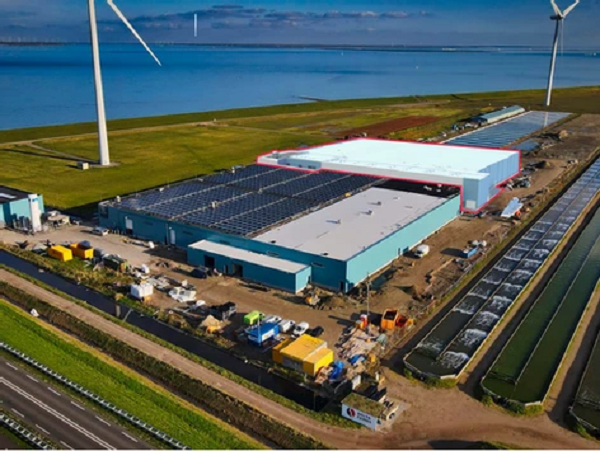
Industry update
News
Kingfish Company reports strong 2023 financial results, surpasses production targets
April 16, 2024 By RAStech staff
 The Kingfish Company RAS facility (Image from: The Kingfish Company)
The Kingfish Company RAS facility (Image from: The Kingfish Company) The Kingfish Company has reported several achievements in its 2023 financial results.
The company’s Phase 2 expansion in the Netherlands has been completed, enlarging its production capacity from 1,500 tons to 3,500 tons per year, with the new facilities fully stocked by the end of 2023. A new in-house packing and processing plant with increased capacity started operation in March 2024 and is fully functioning.
The yellowtail kingfish farmer said its farm’s biological performance surpassed expectations as biomass production increased by 45 per cent, from 1,511 tons in 2022 to 2,195 tons in 2023.
“The record biomass growth and improvement in feed conversion rates of our fish have exceeded expectations,” said Vincent Erenst, chief executive officer of The Kingfish Company.
The company also reported a slightly higher sales volume, 1,457 tons of whole fish equivalent, and an increase of revenue per kg resulted in a 17 per cent increase of revenue. The higher revenue per kg was due to increased prices and more favourable product mix.
Kingfish Company said it recorded zero mass mortalities from the start of operation in the year 2023. “Our gross margin was 19 per cent of revenue or €4.3 million (US$4.5 million), 56 per cent higher than last year, and our gross profit per kilogram was €2.9 (US$ 3.08), an increase of 54 per cent,” said Jeroen Scheelbeek, chairman of the supervisory board.
The company continued to work towards environmental commitments through the 25×25 Sustainability Campaign and said they’re on track with 75 per cent of the 2025 target reached on reducing carbon emissions. They have achieved their target of reducing residual waste and have achieved 32 per cent of increasing recycling efforts.
“These encouraging results are due to our staff’s dedication in ensuring the best possible growing conditions for our fish and optimal operation of our technical systems,” Erenst added.
Print this page